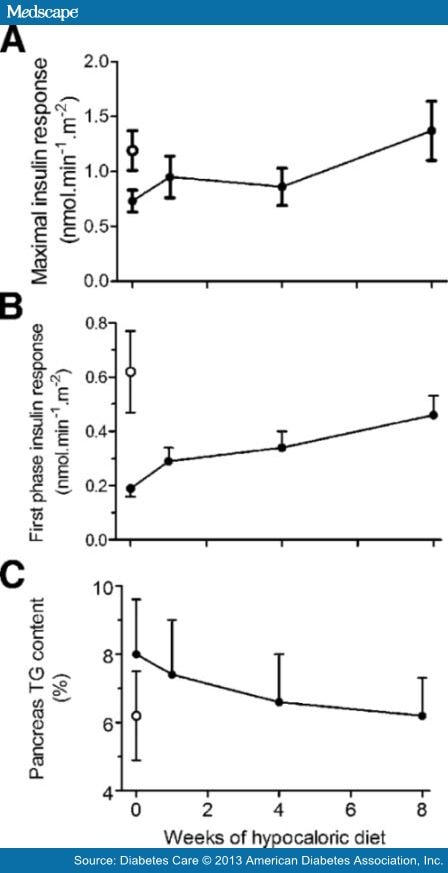janeecee said:
The problem is, for the rest of us, we don't have access to the MRI scanners at Newcastle University and we're not part of that study, so we don't really know how much fat we have in our liver and pancreas, nor do we have access to the same range of blood tests. How can we as a laypeople know what metabolic processes are going wrong (or right) at any particular point, and how far along the continuum we are, and most importantly, can we reverse whatever is going on? And if so, how can we tell?
Well Taylor isn't treating us, he's trying to get the Health Service to take weight loss seriously. The Counterpoint Study in 2011 aimed to confirm, by diet, something which had been observed in people who had bariatric surgery, namely that their diabetes seemed to have disappeared. As Taylor wrote in Practical Diabetes Journal:
"An unexpected result of publication of the Counterpoint study was the intensity and volume of response from people with diabetes. Over 800 emails, letters and phone calls were received about the study. The major theme was of relief at the possibility that type 2 diabetes may not necessarily be a life sentence, and this was coupled with very strong views about the personally devastating effect of the diagnosis of type 2 diabetes. Clearly, these views were expressed by a self-selected group of people who felt very strongly and were motivated to communicate. However, the vital point remains that a substantial number of people are strongly motivated to take action, drastic if necessary, to regain their health. In order to answer the most common questions asked and to provide the practical information requested, our website was extended (http://www.ncl.ac.uk/magres)"
He campaigns for a change in attitude, this from the Banting Lecture:
"It has become widely accepted that Type 2 diabetes is inevitably life-long, with irreversible and progressive beta cell damage. However, the restoration of normal glucose metabolism within days after bariatric surgery in the majority of people with Type 2 diabetes disproves this concept."
He is aware that the Health Service is complacent about the issue:
"It must be recorded that many individuals expressed frustration at the routine manner in which their doctor, nurse or dietitian regarded the diagnosis of type 2 diabetes. This conflicted with the cataclysmic blow which they personally felt. They were told that the diagnosis was clear and therefore the guidelines will be rolled out. Lose some weight and take this metformin. Get used to it."
He's extended the department's magnetic resonance website to include pages and links on this subject, for the benefit of the general public and has FAQ's and even guidance notes for GPs.
http://www.ncl.ac.uk/magres/research/di ... versal.htm
It's one team trying to get the NHS to take this work seriously.
Essentially, he is going over the heads of the NHS by discussing the matter with the general public directly. Few academics would put their career necks on the line in this way. He wants the NHS to be planning your care and requesting scans, but they drag their feet. So, he's saying to us, just lose as much weight as you can and get your GP to help you lose weight.
It might be 20 years before the NHS do anything about this. He's even trying to embarass them on cost grounds. This from MedScape:
"Physicians need to accept that long-term weight loss is achievable for a worthwhile proportion of patients. In the United States, diabetes costs $174 billion annually, and in the United Kingdom, it accounts for 10% of National Health Service expenditure. Even if only a small proportion of patients with type 2 diabetes return to normal glucose control, the savings in disease burden and economic cost will be enormous."
Like you though, I don't know. I've lost 30 Kg and all my readings are well within the normal range. I can even eat chips, ice cream and a bun and I'm in the normal range. But, I don't know what the state of my pancreas is and I still have 30 Kg to lose, so, I'll plod on. Having said that, just losing the weight so far has given me a new lease of life so, even if I don't get 'cured', it will have been worth it. I hope and trust that the decreased glucose levels too will be of benefit to my heart, eyes, kidney and toes. I'll wait until I lose another 10Kg before I experiment with sweet stuff again. At least I have something to hang on to.

